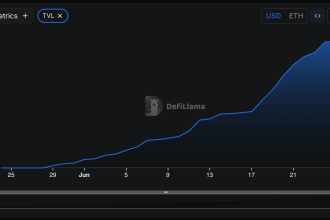North Korean Hackers Launch Sophisticated Cyberattacks on Apple Devices
Cybersecurity firm Sentinel Labs reports that North Korean-aligned hackers are targeting cryptocurrency companies using novel malware, the NimDoor strain, delivered via deceptive Zoom updates.
The campaign utilizes social engineering tactics, impersonating trusted contacts on messaging apps like Telegram, before luring victims with fake Zoom meeting invitations via Google Meet links. The perpetrators then distribute a fraudulent Zoom update, falsely appearing as downloaded from Zoom.
Nimdoor Targets Mac Computers
Upon execution of the compromised file, the NimDoor malware payload—forged to exploit human trust and technical naivety—installs on the Mac system. Its target: cryptocurrency wallets and browser-stored login credentials.
“…the use of Nim compiled binaries on macOS is a more unusual choice” — Sentinel Labs Researchers
Contrary to long-held assumptions that Mac systems are inherently less vulnerable, various campaigns now demonstrate sophisticated macOS malware deployment.
The NimDoor malware is particularly insidious due to its construction. Written in Nim—a newer, less common language favored by cybercriminals for cross-platform compatibility across Windows, Mac, and Linux—it features compilation speed, standalone executable generation, and enhanced evasion capabilities.
“Although early-stage attacks adhere to familiar DPRK tactics concerning social engineering, lures, and fake updates, Nim’s use on macOS stands out.” — Sentinel Labs Researchers
The payload carries a credential-stealing module designed to silently harvest browser data, system information, and package it for transmission back to the attackers. It specifically targets Telegram’s encrypted local database and decryption keys. Adding another layer of sophistication, it activates ten minutes post-infection to potentially elude security scanners.
Macs Get Viruses, Too
Cybersecurity provider Huntress linked similar infiltration attempts to North Korean-sponsored group “BlueNoroff,” malware capable of bypassing macOS memory protections.
Furthermore, SlowMist blockchain security firm recently issued an alert concerning a massive campaign of fake Firefox extension downloads designed to steal cryptocurrency credentials.
“Over the last few years, macOS has become a larger target for threat actors, especially state-sponsored attackers.” — Sentinel Labs Researchers
This emerging threat landscape underscores a critical shift and dispels outdated security myths surrounding the Macintosh platform.
Related Story: Crypto Firms Report Record North Korean Fake Zoom Phishing












